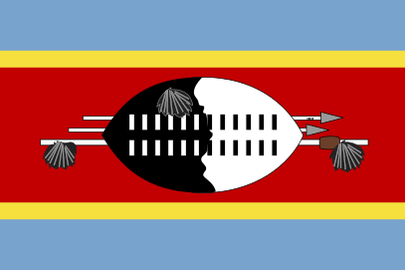britannica.com
Always private
DuckDuckGo never tracks your searches.
Learn MoreYou can hide this reminder in Search Settings
All regions
Argentina
Australia
Austria
Belgium (fr)
Belgium (nl)
Brazil
Bulgaria
Canada (en)
Canada (fr)
Catalonia
Chile
China
Colombia
Croatia
Czech Republic
Denmark
Estonia
Finland
France
Germany
Greece
Hong Kong
Hungary
Iceland
India (en)
Indonesia (en)
Ireland
Israel (en)
Italy
Japan
Korea
Latvia
Lithuania
Malaysia (en)
Mexico
Netherlands
New Zealand
Norway
Pakistan (en)
Peru
Philippines (en)
Poland
Portugal
Romania
Russia
Saudi Arabia
Singapore
Slovakia
Slovenia
South Africa
Spain (ca)
Spain (es)
Sweden
Switzerland (de)
Switzerland (fr)
Taiwan
Thailand (en)
Turkey
Ukraine
United Kingdom
US (English)
US (Spanish)
Vietnam (en)
Safe search: moderate
Strict
Moderate
Off
Any time
- History of Eswatini, a survey of the notable events and people in the history of Eswatini from prehistoric times to the present day. The country's official name is the Kingdom of Eswatini (siSwati: Umbuso weSwatini). ... This was a turbulent period in the history of southeastern Africa, when a number of major clan groupings were struggling ...
en.wikipedia.org
History of Eswatini. 26 languages. ... Somhlolo was a strategic leader between 1815 and 1839 a period including the Mfecane period of Shaka Zulu a Zulu illegitimate child of Senzangakhona who created his kingdom from the Mtetwa polity established by Dingiswayo. Sobhuza used his diplomatic skills to avoid conflict with Shaka by allying with him ...en.wikipedia.org
Main page; Contents; Current events; Random article; About Wikipedia; Contact us; Help; Learn to edit; Community portal; Recent changes; Upload fileworldhistoryedu.com
World History Edu
https://worldhistoryedu.com › history-and-major-facts-about-eswatini
Aug 3, 2024History and Major Facts about Eswatini. by World History Edu · August 3, 2024. The Kingdom of Eswatini, formerly known as Swaziland, has a rich history that traces back centuries. ... This period also saw the arrival of the first white settlers in the region. The interactions with European powers became more complex after Mswati II's death ...lebarty.bongchong.com
The nation navigated European colonial pressures, becoming a British protectorate in the early 20th century, before achieving independence in 1968. The modern period of Eswatini has been characterized by significant political changes and efforts to preserve its cultural heritage. Chronological History of Eswatini. Early History and Migrations:worldofhistorycheatsheet.com
worldofhistorycheatsheet.com
https://worldofhistorycheatsheet.com › history-of-eswatini
Jul 5, 2024Eswatini, formerly known as Swaziland, has a rich history marked by its development from ancient times through colonization and into modernity. Early History Indigenous Peoples: The area was originally inhabited by the San people. Bantu Migration: Around the 15th century, Bantu-speaking peoples, including the Swazi, migrated into the region.sahistory.org.za
This book examines aspects of the political history of Swaziland and covers the period up to 1921 when the late Sobhuza II assumed the kingship. At the commencement of my research, the most reliable accounts on the background of the Swazi were by two anthropologists, Hilda Kuper and Brian Marwick, supplemented by a general history prepared by J ...swazidirectory.co.sz
Swaziland Online Directory
www.swazidirectory.co.sz › index.php › general-information › history-swaziland
A BRIEF HISTORY. Eswatini is an independent monarchy, rich in traditions and heritage, led by King Mswati ill with perliament and consultation prescribing all laws and customs. ... Sobhuza I married off two of his daughters to the Zulu leader bringing a period of peace of prosperity to Eswatini with the defeat of the Zulus led by Dingane at ...afrodiscovery.com
Mar 14, 2024Impact of Colonization: The colonization period brought significant changes to the region. Struggle For Independence. ... The history of Eswatini is a rich tapestry woven with the threads of ancient civilizations, colonial rule, and ultimately independence. From the early Bantu settlers to the British protectorate, the country's story is one ...en.wikipedia.org
Eswatini [b], formally the Kingdom of Eswatini, also known by its former official name Swaziland [c] and formally the Kingdom of Swaziland, [11] [12] is a landlocked country in Southern Africa.It is bordered by Mozambique to its northeast and South Africa to its north, west, south, and southeast. At no more than 200 km (120 mi) north to south and 130 km (81 mi) east to west, Eswatini is one of ...Can’t find what you’re looking for?
Help us improve DuckDuckGo searches with your feedback
